Volume 245,
$6.95
10 Essential Demand Generation Strategies for Lawyers
Noreen Fishman
The Importance of Succession Planning for Lawyers
Douglas Chandler & Dena Stoddard
SEO for Law Firms: What Is Answer Engine Optimization?
Julie Lorson
Building Long-Lasting Client Relationships
Silvia Coulter

Baker’s Dozen: How to Create Meaningful Mentorships
Baker Donelson
Arbitration and Mediation: Why I Do Both
Tanya Tate
California Case Summaries
Monty A. McIntyre
PROFESSIONAL PROFILE OF THE MONTH
Seana Scholtemeyer, Walton Law, APC, San Diego
Advocating for Equity
Ali
SAN DIEGO
2024
Razavi Razavi Law Group, APC Serving San Diego
Be Heard
Let Your Voice
Attorney of the Month
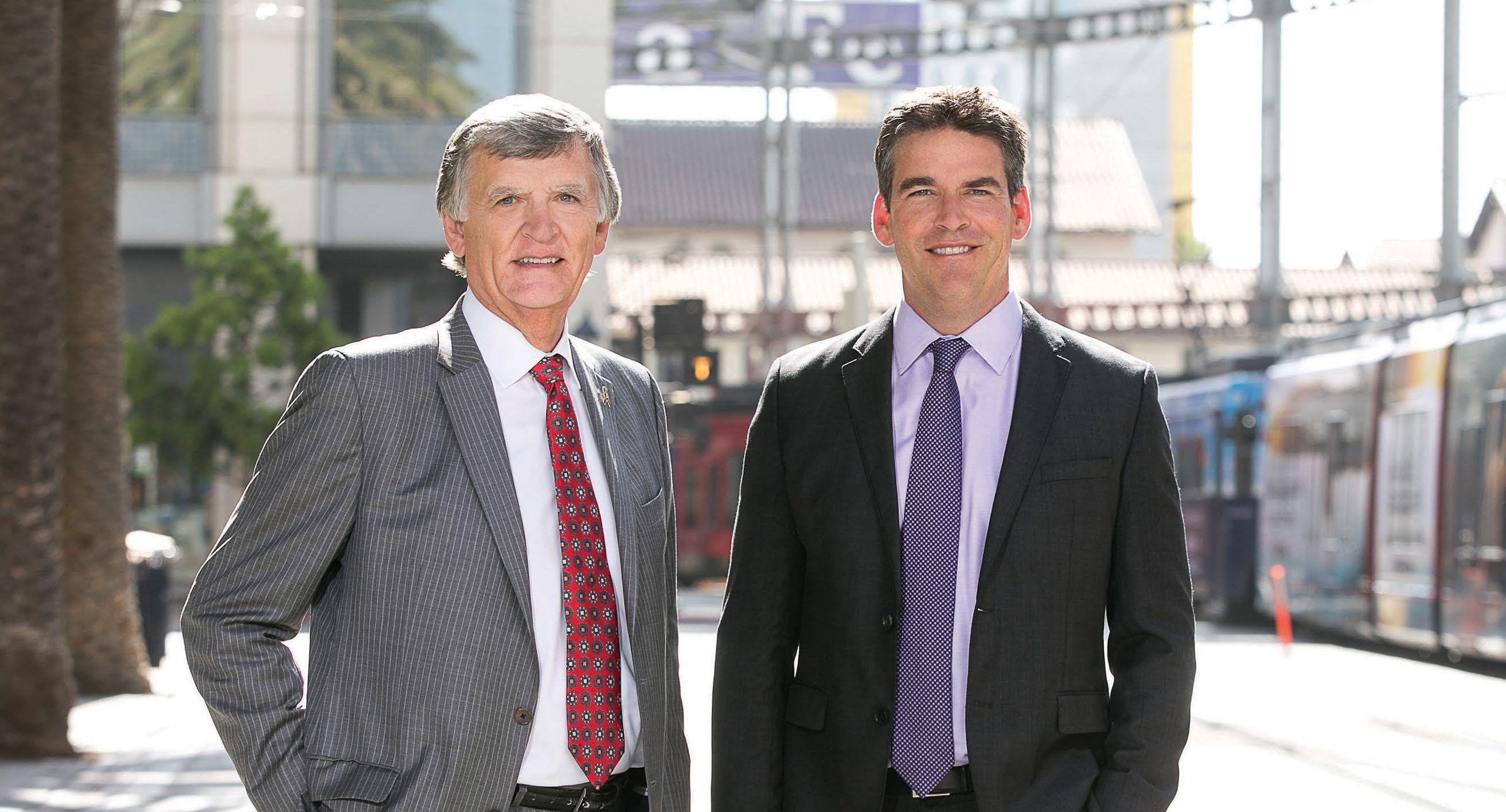


• $22,659,551 settlement for clients defrauded in a local Ponzi scheme in Levin v. Chicago Title, et al. (2021)(Michael Kirby & Jason Kirby).
• Complete defense jury verdict in real estate dispute and more than $400,000 collected for attorneys’ fees and costs in Batter v. McElhinney, et al. (2019)(Jason Kirby).
• $2.1 million jury verdict for firm client in Doe v. San Diego Unified School District, et al. (2018)(Jason Kirby & Michael Kirby).
• $1.1 million arbitration award for firm clients on cross-complaint after zeroing plaintiff on $6 million damage claim in Step Strategy Advisors v. Solid Gold Health Products for Pets, Inc., et al. (2018)(Jason Kirby lead counsel).











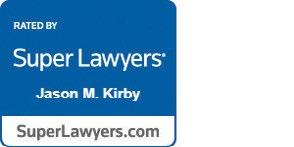
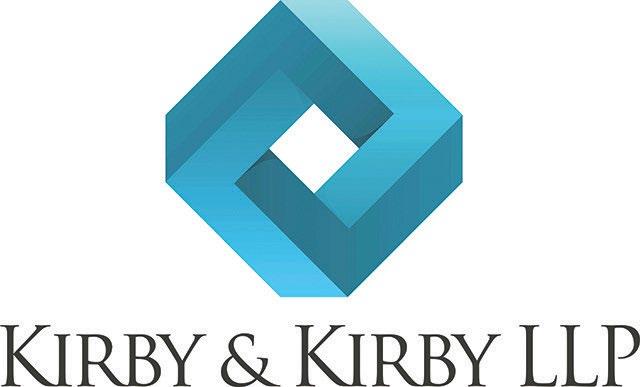
501 West Broadway | Suite 1720 | San Diego, CA 92101 | 619-487-1500 | www.kirbyandkirbylaw.com
SPECIALIZING IN COMPLEX BUSINESS LITIGATION BET-THE-COMPANY CASES OVER 65 YEARS OF COMBINED EXPERIENCE REFERRALS/SUBSTITUTIONS ACCEPTED AT ALL STAGES OF LITIGATION, INCLUDING TRIAL





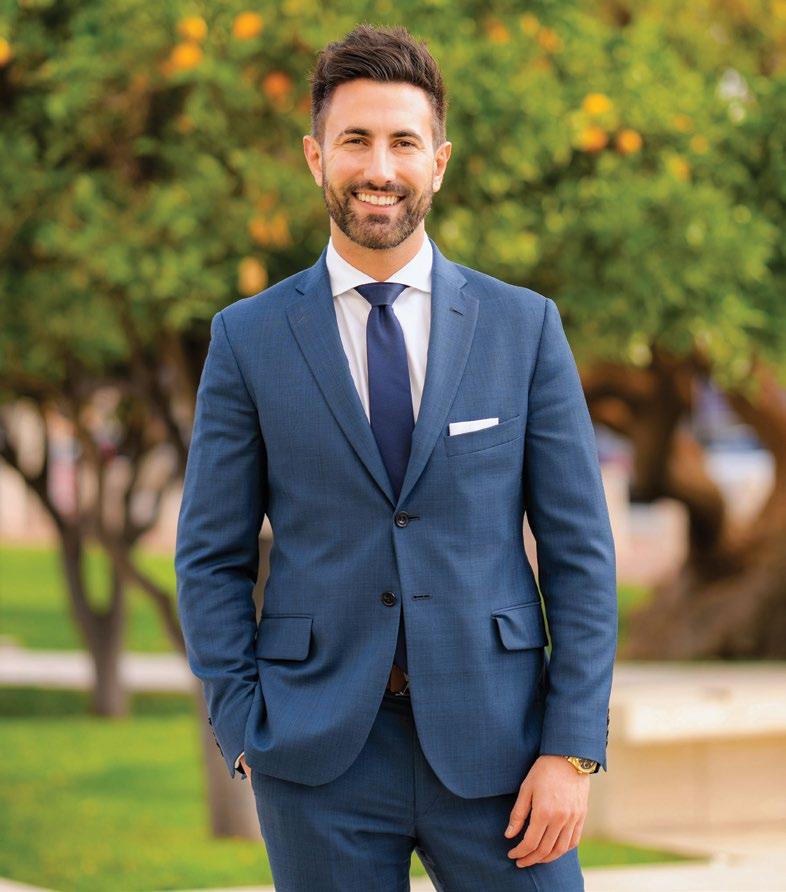

Editorial material appears in Attorney Journals as an informational service for readers. Article contents are the opinions of the authors and not necessarily those of Attorney Journals. Attorney Journals makes every effort to publish credible, responsible advertisements. Inclusion of product advertisements or announcements does not imply endorsement. Attorney Journals is a trademark of Sticky Media. Not affiliated with any other trade publication or association. Copyright 2024 by Sticky Media. All rights reserved. Contents may not be reproduced without written permission from Sticky Media. Printed in the USA EXECUTIVE PUBLISHER Brian Topor EDITOR Wendy Price PUBLICATION DESIGN Penn Creative CIRCULATION Angela Watson PHOTOGRAPHY Chris Griffiths STAFF WRITERS Dan Baldwin Jennifer Hadley CONTRIBUTING EDITORIALISTS Douglas Chandler Silvia Coulter Baker Donelson Noreen Fishman Julie Lorson Monty A. McIntyre Dena Stoddard Tanya Tate ADVERTISING INQUIRIES Info@AttorneyJournals.com SUBMIT AN ARTICLE Editorial@AttorneyJournals.com OFFICE 30213 Avenida De Las Banderas Suite 200 Rancho Santa Margarita, CA 92688 www.AttorneyJournals.com ADDRESS CHANGES Address corrections can be made via email or postal mail. 2024 EDITION—NO.245 TABLE OF CONTENTS
The Importance of Succession Planning for Lawyers by Douglas Chandler & Dena Stoddard PROFESSIONAL PROFILE OF THE MONTH 10 Seana Scholtemeyer, Walton Law, APC, San Diego Advocating for Equity by Dan Baldwin
SEO for Law Firms: What Is Answer Engine Optimization? by Julie Lorson
Baker’s Dozen: How to Create Meaningful Mentorships by Baker Donelson ATTORNEY OF THE MONTH 16 Ali Razavi, Razavi Law Group, APC, Serving San Diego Let Your Voice Be Heard by Dan Baldwin 22 Ten Essential Demand Generation Strategies for Lawyers by Noreen Fishman 24 Building Long-Lasting Client Relationships by Silvia Coulter 26 Arbitration and Mediation: Why I Do Both Tanya Tate 28 California Case Summaries Monty A. McIntyre 26 16 10
6
12
14
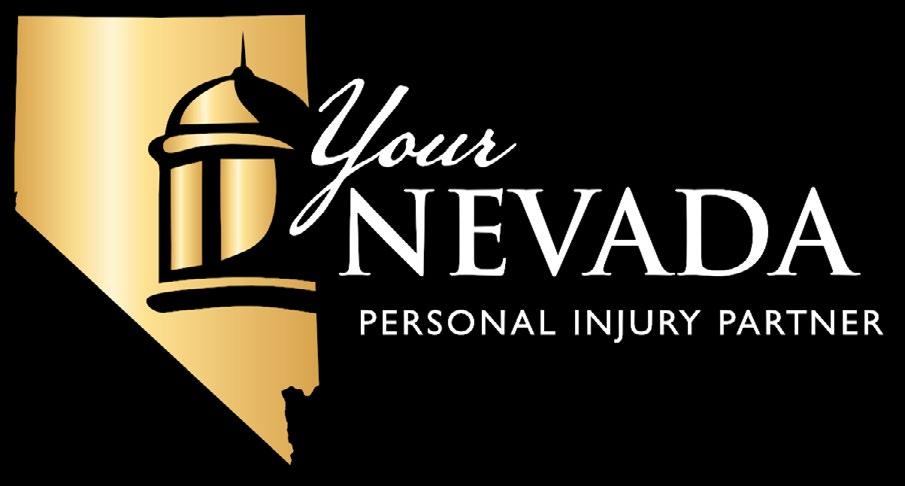







“Rick is one of the best lawyers in the country. I
him every time I have any issue in Nevada and would not hesitate to refer him any type of case of any size.”
~ C. Michael Alder, Esq., Alder Law, Los Angeles, California, CAALA Past President and Former Trial Lawyer of the Year






NEVADA REFERRAL & CO-COUNSEL RELATIONSHIPS NEVADA’S LARGEST & HIGHEST RATED INJURY LAW FIRM 801 SOUTH 4TH STREET | LAS VEGAS, NV 89101 6900 SOUTH MCCARRAN BLVD., #1010 | RENO, NV 89509
call
OVER $1.5 BILLION WON FOR CLIENTS PAST RESULTS DO NOT GUARANTEE FUTURE SUCCESS RichardHarrisLaw.com

Succession planning is a crucial aspect of the legal profession. As lawyers, we devote our careers to serving clients and providing expert legal counsel. However, it is equally important to plan for the future and to ensure a smooth transition for our clients and law practices when either the time comes to pass the baton or in the unexpected situation when we are no longer able to continue practicing law due to incapacity or death. Law firm succession planning is particularly important for solo or small firms to ensure a smooth transition of the lawyer’s practice in the wake of an unexpected circumstance.
It is hard to believe, much less think about the possibility, that we might be involved in a life event that renders us incapable of practicing law whether for a period of time or permanently. Examples of these types of unexpected life events include loss or suspension of your law license, the onset of a life-threatening illness, suffering a disability that makes the practice of law impossible, involvement in an accident that results in temporary or permanent incapacity, a family emergency that requires an extended leave of absence, or the sudden loss of life. Unfortunately, these events happen, and we as lawyers need to make sure we have a solid succession plan in place just in case.
Recently, our firm was contacted by a woman who called in a panic. She was the daughter of a lawyer who slipped, fell, and hit his head, rendering him incapable of practicing law. She was desperately reaching out to us as she did not know what to do with his law practice. She had researched other resources online, but none of those resources provided her with the assistance or detailed plan she needed to wind down and close her father’s law practice properly. Family members are often lost in this regard when an unexpected event or loss occurs, and they are unsure how to navigate this process. That is why it is so important to have a detailed succession plan in place to guide those we love and care about through the process of winding down and closing our law practice in the event of a catastrophic event. Without a succession plan, family members must figure out how to navigate the process or
The Importance of Succession Planning for Lawyers—Ensuring a Smooth Transition
by Douglas Chandler and Dena Stoddard
they must hire someone at great expense to help them through the process.
Succession planning now for the future is important for many reasons. Among those reasons are protecting client interests, preserving your firm’s reputation, identifying and developing future leaders in your firm, creating financial stability and ensuring business continuity. Furthermore, proper planning helps minimize legal and ethical risks that can expose you to potential bar grievances and/or legal malpractice claims being filed against you. Moreover, proper planning ensures a smooth transition for your clients, your employees and your family.
Protecting Client Interests
One of the primary reasons why succession planning is essential for lawyers is to safeguard the interests of our clients. It is important to remember that just because we suffer an unexpected life event that results in our incapacity or death, our duties and obligations to our clients survive that incapacity or death. Incapacity or death is not an excuse. Clients rely on us for legal guidance and support, often entrusting us with highly sensitive information. By having a succession plan in place, we can ensure that our clients’ needs will continue to be met even in our absence. A well-executed plan will minimize disruptions, maintain the continuity of client relationships and ensure that the deadlines in their cases continue to be met in your absence.
Preserving the Firm’s Reputation
Law firms build their reputation over years of dedicated service, sound advice and successful outcomes. Without proper succession planning, a lawyer’s incapacity, departure, or retirement may leave a void that can impact the firm’s reputation and credibility. Succession planning allows firms to maintain their established brand and reputation by seamlessly transitioning responsibilities to capable successors. This ensures that the firm’s legacy and goodwill are preserved.
6 Attorney Journals San Diego | Volume 245, 2024
Identifying and Developing Future Leaders
For multi-lawyer firms, succession planning provides an opportunity to identify and develop future leaders within the firm. By assessing the skills, expertise and potential of junior attorneys, firms can strategically groom them for leadership roles. This process involves mentoring, training, and gradually increasing responsibilities, allowing the successors to acquire the necessary experience and knowledge to lead the firm effectively upon the incapacity or death of older members.
Financial Stability and Business Continuity
A well-designed succession plan helps to ensure the financial stability and continuity of the law practice. It allows for a smooth transition of ownership and management, minimizing the risk of business disruption. A comprehensive plan may include provisions for the transfer of client files, management of ongoing cases, and the handling of financial matters. By addressing these aspects proactively, lawyers can protect their own financial interests, provide for future cash flow, and preserve the long-term viability of their practice.
Minimizing Legal and Ethical Risks
Without a clear succession plan, lawyers will find themselves facing financial, legal and ethical challenges. In the absence of proper guidance, clients’ cases may be mishandled, deadlines




missed, or confidential information compromised. This can lead to malpractice claims, ethical violations and reputational damage which will survive the lawyer’s incapacity or death. By implementing a well-structured succession plan, lawyers can mitigate these risks and ensure that their professional obligations are fulfilled, even after their departure.
Each of these reasons illustrate that it is critical to take the time to develop a detailed succession plan for yourself and your law firm. It is never too early to start succession planning. Indeed, planning requires careful consideration, open communication and ample time for implementation. As lawyers, we owe it to our clients, ourselves, our families and our profession to ensure a seamless transition when the time comes to pass the baton, whether that time comes unexpectedly or by choice. Creating a detailed succession plan now will hopefully eliminate the need for your loved ones to contact an attorney in a panic. n

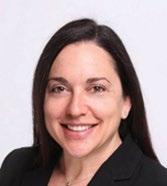
Douglas Chandler is the founder of Chandler Law and a Board-Certified Legal Malpractice Attorney, Co-Founder and Executive Committee Member of the State Bar of Georgia Professional Liability Section, and an active lecturer and panelist on the topics of Law Firm Risk Management, Legal Professional Ethics, and Malpractice Prevention. Dena Stoddard has practiced primarily in the areas of Child Advocacy and Medical Malpractice Defense. Dena is a litigator who is dedicated to her clients and throughout her practice has gained the experience and knowledge she needs to achieve results. Learn more at www.chandler-law.net.


















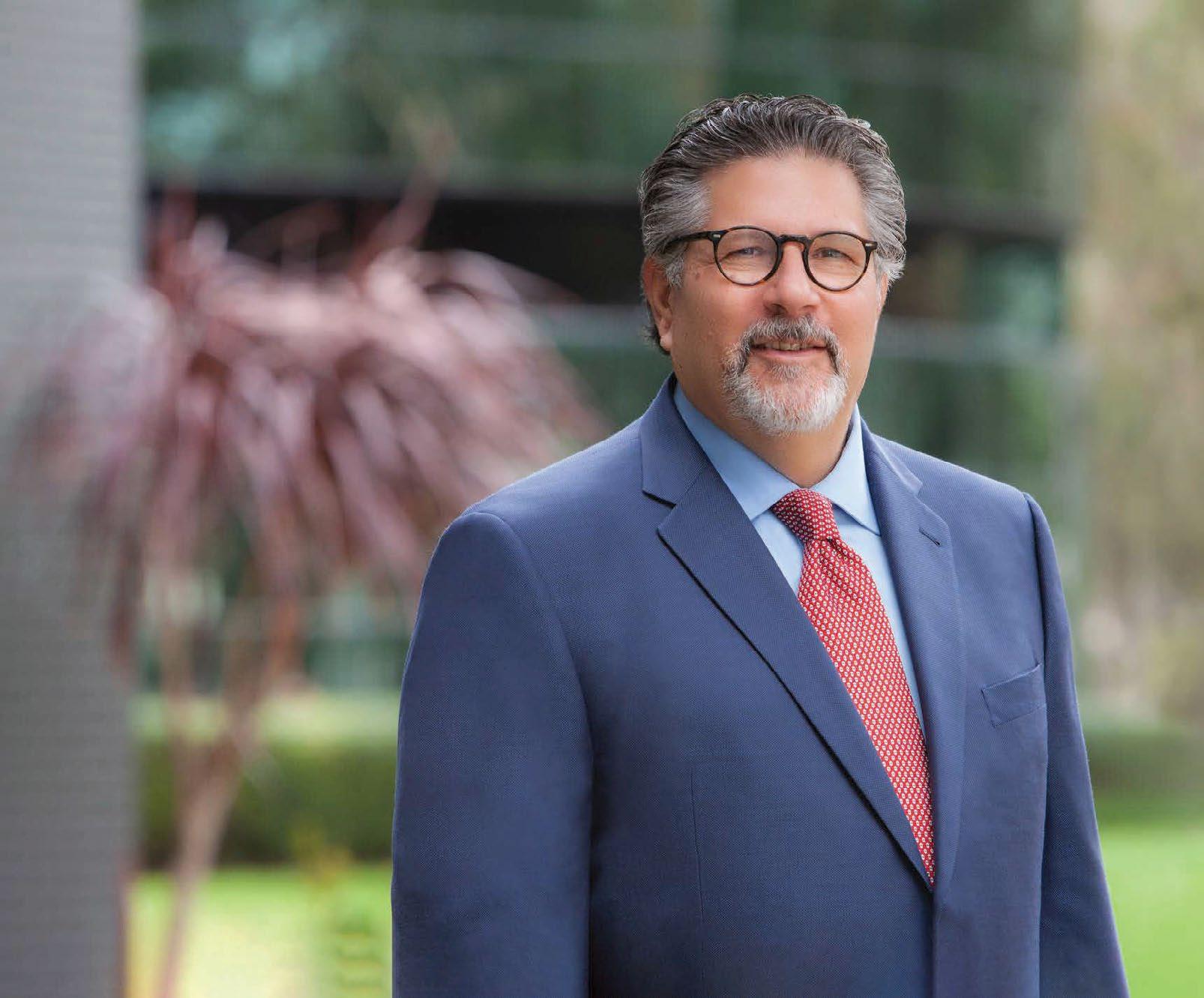












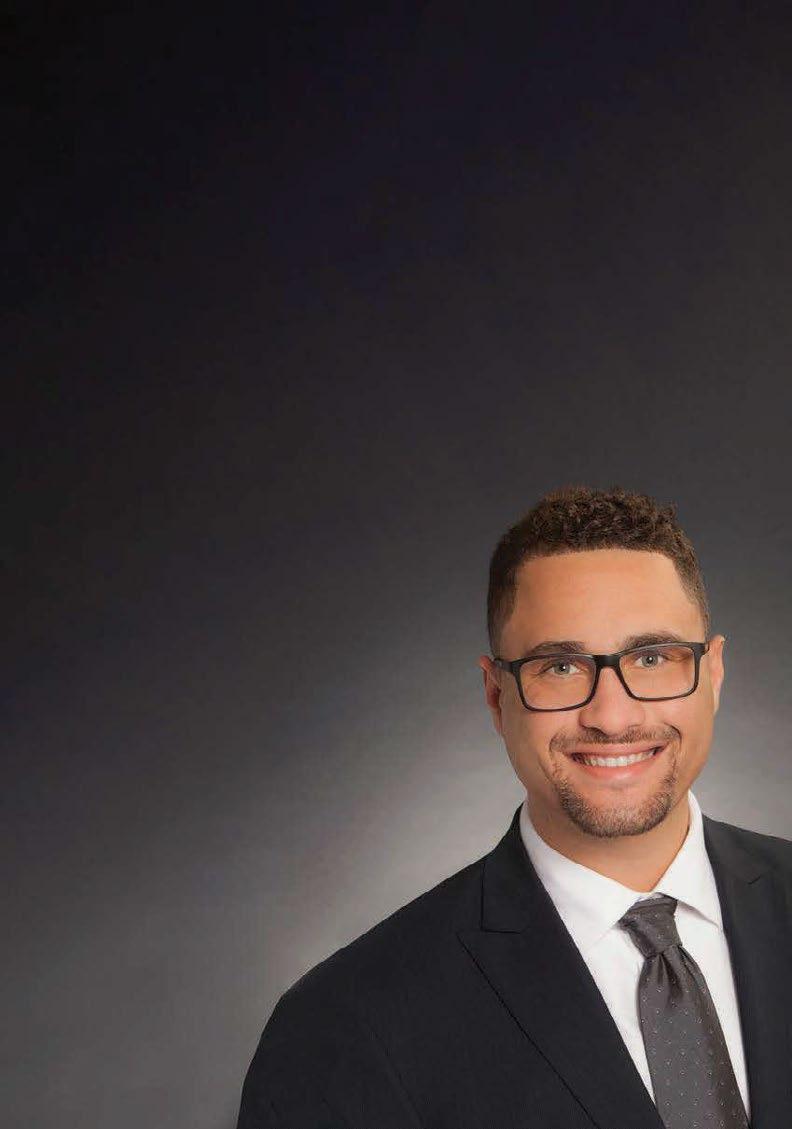



D. Woodard PARTNER
F. Schechter PARTNER mschechter@bsllp.com Butterfield Schechter LLP is San Diego County’s largest firm focusing its law practice primarily on employee benefit legal services. Our experience in employee benefits law and business law provides creative solutions for the most pressing business concerns. We are also dedicated to employee ownership and know all things ESOP (Employee Stock Ownership Plans). Learn more at www.bsllp.com. Helping You See ERISA and Employee Benefits Law Clearly Practice areas include: ESOPs - Pension, Profit Sharing, 401(k) Plans - ERISA Litigation - ERISA Compliance - IRS and DOL Audits - Nonqualified Deferred Compensation Plans - Stock Options Plans - Business Transaction & Succession Planning - Qualified Domestic Relations Orders (QDROs)
Paul
Corey
FIRM FOCUS ON EMPLOYEE BENEFITS LAW
7 Attorney Journals San Diego | Volume 245, 2024


Carlsbad Office 2175 Salk Avenue, Suite 180 Carlsbad, CA 92008 Top Client Reviews Average 5-Stars on: 619-INJURED www.hhjtrialattorneys.com @hhjtrialattorneys La Jolla Office 6435 Caminito Blythefield, Suite D La Jolla, CA 92037 REFERRING ATTORNEYS WILL RECEIVE REFERRAL FEES!
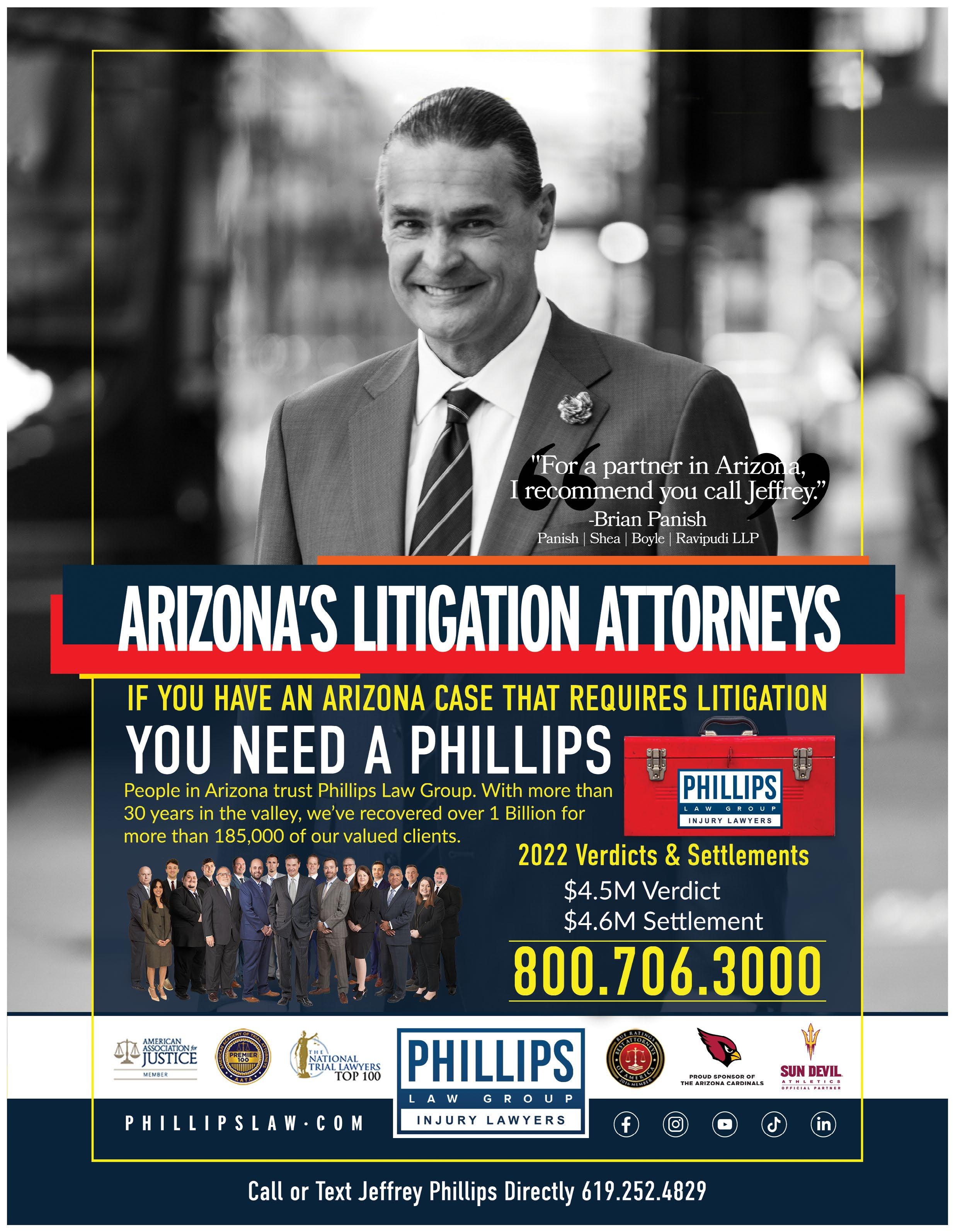
Advocating for Equity
The Passionate Pursuit of Justice in Employment Law
by Dan Baldwin

The employment cases I am currently working on focus on sexual harassment and race discrimination. These particular types of cases get me fired up because they evoke a profound sense of purpose in effecting transformative change, influencing individual perspectives and contributing to the broader evolution of society, one mindset at a time,” says Seana Scholtemeyer, Senior Trial Attorney at Walton Law, APC.
Her firm represents personal injury, employment discrimination, and elder abuse cases. Scholtemeyer’s practice focuses on counseling and representing employees in California employment law, including wage and hour, wrongful termination, discrimination, and sexual harassment. Her clients come from all walks of life. They are regular people who have unfortunately experienced discrimination in the workplace. The desire to be acknowledged for their hard work and rewarded based on merits is universal. However, justice is not. When a client’s livelihood is jeopardized due to discrimination, it impacts their self-esteem, emotional wellbeing, and how they see the world. Their typical clients have never been involved in litigation before and are therefore feeling fearful of facing a complex and challenging legal system alone.
She has always enjoyed litigating personal injury cases and helping people who have been injured because what
they are going through can be frightening and frustrating and navigating through the legal process while fighting an insurance company can be overwhelming. Focusing also on employment law aligns with her personal skills and interests.
Scholtemeyer emphasizes the need for personal and professional values to remain centered and to assure that the best decisions for each client are considered, enacted, and achieved with the best possible end results. She focuses on the individual experiences of each client and doesn’t take a one-size-fits-all or a cookie-cutter approach to any case. She believes in compassionate representation, total preparation for trial, and maintaining a steadfast willingness to refuse to back down. She says that deep down lawyers are problem solvers and that thinking out of the box is often the best way to solve a client’s unique problem.
She has a lifelong passion for fairness and equality, much of that commitment coming from her experience with her father, who is an attorney. She and her sister cleaned the office on Saturdays, getting paid in frozen yogurt. During those early years she often read from his law library. She also observed him litigate for women in challenging representations including breast implant, employment discrimination, and abuse and assault cases.
FEATURED FEATURED PROFESSIONAL PROFILE OF THE MONTH JOURNALS 2024
© Bauman Photographers
Attorney Journals San Diego | Volume 245, 2024 10
Her philosophy about working with clients is to communicate with each client and to avoid “talking at” a client. It is important to determine what a client really expects from the legal process, such as resolution or meaningful closure. Some just want to have their day in court. Scholtemeyer says, “Every client has expectations for litigation and giving them advice that aligns with their core objectives is important to us. Our firm knows that for many people, this is their first experience dealing with an attorney and we want to make a good impression, knowing we must battle negative stereotypes about lawyers. Our attorneys maintain a caseload designed to ensure clients receive personalized attention.”
Seeing the Dolly Parton movie Nine to Five when she was growing up had a profound impact on the direction of her future. She saw the stark contradiction for young girls being told they can choose any career by society and yet seeing that women were disrespected in a professional setting. That incident solidified her drive to become a lawyer to make a positive impact and advocate for justice, fairness, and equality. Her inspirations include many famous female lawyers such as Ruth Bader Ginsburg, Sandra Day O’Connor, Anita Hill, and Gloria Allred.
She notes that male lawyers (opposing counsel) have sometimes refused to speak with her, asking instead for her male boss, have refused to shake her hand, called her “sweetheart” and “hon,” or likened her to their daughters. Those attitudes are neither clever nor funny.
That passion for equality is evident in her commitment to fighting for equality and fairness for women, including women in the law. She cites several instances in which she and other female attorneys are often immediately misidentified as court reporters or secretaries for male attorneys. “It surprises me that history repeats itself, just with different actors. The importance of calling people out on discrimination, having those difficult conversations, and redressing the wrongs impacts all of us now and the workplace that our children and grandchildren will experience. It still happens today. It’s not a problem of yesterday. You’d be surprised. I hear it often when speaking with women lawyers, we get asked if we are the court reporter, even in 2024,” she says.
Scholtemeyer says, “Gender discrimination and workplace harassment persists as women continue to face disparities in representation at senior positions and pay scales, missed opportunities related to gender bias, and being a mother. Workplace discrimination erodes women’s confidence, all the little slights, receiving less support from senior leadership, not being given big assignments, and dismissing their ideas.”
She says that many young women attorneys just entering the workforce are startled by such treatment. She advises standing up for your rights, but also to develop a thick skin and to avoid letting such acts drain someone’s drive, energy, and spirit. Never let discrimination over gender, race, or belief overpower your will to succeed.
She is a firm believer in setting and achieving personal and professional goals that are clearly outlined and marked by measurable results, timelines, and definitive steps. Continuing education is one of her major goals. For example, last year she participated in the San Diego County Bar Association’s Leadership Academy and learned invaluable lessons about being an authentic leader and made meaningful connections with other attorneys committed to excellence. “What’s important to me is continuing to learn new things, taking cases that are meaningful, providing great service to our clients, and taking on more responsibility. I want to work with a high-quality team that pushes the bounds of what is possible further every year,” she says.
While away from the workplace, she spends time with her husband and kids. They can usually be found at one of their kids’ sporting events, at the park, hiking, or volunteering their time at some community event. They believe in involving their children in a commitment to contribute to the world through ongoing small acts of kindness. “I really try to be present when I spend time with my husband and my kids. I try to view life one day at a time, and always strive to be the best mom I can be. It’s always a give-and-take situation, however, finding a real balance is the goal and allows for both passions to excel.”
She also spends time working out at her gym, practicing yoga, reading, volunteering at her kids’ school whenever possible, and doing pro bono work. She is also involved with Lawyers Club of San Diego, co-chair of Red White and Brew Committee, on the San Diego County Bar Association Leadership Academy committee, and the Consumer Attorneys of San Diego Membership committee.
“I consistently dedicate 110% effort, committing wholeheartedly in everything I do. I strive to always grow, exceed personal benchmarks, and reach for what is beyond my grasp. I am motivated, well-prepared, and love a challenge. My professional mission is to advocate against discrimination, giving a voice to those who have been treated differently, particularly women and people of color. I firmly believe that justice should be accessible to all, regardless of socio-economic status or background. Changing the world into a more equitable and inclusive community where the rights of every individual are upheld and protected.” n
12555
Attorney Journals San Diego | Volume 245, 2024 11
Contact Seana Scholtemeyer, Esq. Walton Law, APC
High Bluff Drive, Suite 333 San Diego, CA 92130 (866) 338-7079 www.waltonlawapc.com

One of your goals is likely to improve the online visibility of your firm. If you’re already working on strategies like SEO, paid advertising, and social media, then you’ll want to add AEO to your arsenal. Here’s what legal marketers need to know about Answer Engine Optimization (AEO).
AEO: The Basics
Answer engine optimization is a method designed to help achieve more prominence in a search engine’s results by offering direct answers to a user’s inquiry. Most of the time, you’ll notice these sorts of answers in the form of carousels, snippets, packs, etc. What they all have in common is that they’re meant to deliver a better experience to users.
At its core, AEO is intended to save time while seeking an answer to a certain question. AEO can be used across a desktop, device, or by voice command. If you search using a specific question, the search engine wants to provide a succinct and direct answer as often as possible. That’s great because people want to save as much time as possible. In today’s hyper-digital world, most people turn to the internet when they need information, and they want to get that information in as few steps as possible.
How Is AEO Different from SEO?
AEO is meant to optimize your presence online, just as SEO is. However, AEO uses the intent, relevance, and context of your search query to provide a precise answer in the shortest amount of time. While the goal of SEO is to help your website rank higher, AEO has the goal of answering a particular question. Search engines assess things like backlink quality, domain authority, and mobile friendliness to assess your website’s overall position in rankings.
AEO doesn’t have a negative impact on SEO, and it won’t affect the overall impact of SEO—SEO is still crucial for overall ranking. AEO and SEO should have a symbiotic relationship where both tactics work together
SEO for Law Firms: What Is Answer Engine Optimization?
by Julie Lorson
to serve users the most accurate information and the best experience. Think of AEO as an extended version of SEO that aims to provide users with a concise and direct answer to their questions.
Using AEO to Improve Your Outcomes
Is focusing on AEO worth your time? There are a few specific advantages that AEO can offer, including:
• Immediate traffic —With AEO, searchers can find your firm’s site easily and quickly. AEO helps users find your information based on their intent, context, and topic relevance without using much effort.
• Enhanced conversions —You’re more likely to get qualified leads if you have a credible online presence that attracts prospects. When people are searching for legal assistance, they want to see extensive knowledge and experience. Having answers that position you as an expert online makes the decision of potential clients easier.
• Competitive advantages —Since users don’t have to dig for your site or browse a lot of search results, you’ll have a serious edge over other competitors on the search engine result page. It’s easier to spot the details that match a search inquiry and allows your site to reach more people.
• Lower advertising costs —Normally, if you want to appear at the top of a search engine page, you need to pay for advertising spots. With AEO, you can get more exposure without the advertising expense. By fine-tuning your web content to better mirror relevant keywords used in search, you can more quickly become available to people searching for your expertise.
How Can Law Firms Improve Their AEO?
To improve your firm’s answer engine optimization, start by focusing on structuring your content to provide
12 Attorney Journals San Diego | Volume 245, 2024
concise and direct answers to common legal questions. This involves creating informative blog posts, articles, and FAQs that address specific legal queries in a clear and organized manner.
Additionally, optimizing website content with relevant keywords and ensuring that it is easily accessible and understandable can improve the chances of being featured as a direct answer in search results.
Finally, implementing schema markup plays a crucial role. Schema markup provides a way to give search engines more detailed information about the content on a website, enabling them to better understand and display it in search results.
There are various types of schema markup that can be particularly beneficial for law firms, including “Organization” for detailing the firm’s information, “Service” for outlining the legal services offered, “Person” for team member profiles, and “Article” for publishing legal insights and case studies. Implementing schema markup not only helps law firms stand out in SERPs but also allows search engines like Google to better understand the context and relevance of the
website’s content. This, in turn, increases the likelihood of the firm’s content appearing as a featured snippet, thereby boosting visibility and click-through rates.
Takeaway
AEO is a growing practice, and for good reason. It allows searchers to easily receive direct answers to the questions that matter to them. By analyzing the relevance and context of search queries, AEO helps search engines to deliver the best information while helping your firm to gain valuable exposure. n

Julie Lorson is thrilled to be the Director of Search Engine Marketing at Good2bSocial. She has been working in SEO for over 15 years! For the past 6, she has focused on SEO for law firms and other law firm digital marketing efforts. She is looking forward to bringing that experience to the clients at Good2bSocial. Located on Long Island, New York, over the course of her career, she has learned the many nuances that it takes to make websites rank in the top positions in Google. Learn more at: www.good2bsocial.com.

13 Are You a Business Owner OR Attorney With a Client Who is Dealing With an ADA Violations Lawsuit? Don’t Panic! (ACT) Now! NATIONWIDE ADA COMPLIANCE SOLUTIONS We have the answers and solutions to all of your ADA compliance issues for your business and/or client. 2041 Riviera Drive Vista, CA 92084 (760) 940-6106 adacomplianceteam.com ADA Compliance Team, Inc. (ACT) COMPLIANCE SURVEYS / ACCESSIBILITY SOLUTIONS / TRANSITION PLANS Attorney Journals San Diego | Volume 245, 2024

We recently asked the Baker Donelson community to share “one tip or piece of advice on how to create meaningful mentorships.”
“I had the good fortune as a senior associate and young shareholder to work closely with John Tomasso, General Counsel of our client, Rexel, Inc. Rexel had bought electrical supply distributors across the United States, and John was tasked with piecing it all together from a legal standpoint. John entrusted me with a great deal of responsibility for the employment law compliance in that regard. We worked together to prepare a multistate employee handbook and to resolve various employment disputes and litigation across the country. Along the way, John gave me feedback and helped me understand his role and how what we were doing related to the inner workings of the company. Thanks to John, I learned to understand the general counsel role and the challenges and pressures associated with it. I also learned how to be a better advisor and problem solver.
To be blunt, John is one of the most influential and impactful people in my entire legal career. His advice, feedback, and trust were critical in developing me as a trusted advisor on significant matters for a large, indeed international, company. We worked together for many years and accomplished a great deal, for which I am still very proud. I cannot thank him enough for all that he did for me.” —Russell W.
Gray, Shareholder, Baker Donelson
“We’ve all heard that you get out of something what you put into it. This is especially true for a mentor/mentee relationship. Both parties must be willing to commit to ‘doing the work,’ it simply will not work if only one person is invested. True successful mentorships that I’ve been a part of or witnessed have two active and engaged participants, two parties seeking to learn from and lean on each other.
I have been blessed by a very strong mentor who has unselfishly shared his time, guidance, and support throughout the years, and I would not be where I am today without him. As our mentorship has grown, because we both continue to be invested, it is now more of a two-way street, and we lean on each other for advice and support. In my opinion, this is the only true way to succeed. Relationships
Baker’s Dozen: How to Create Meaningful Mentorships
by Baker Donelson
are vital to our success, and that success is rarely, if ever, a solo effort. I try to focus on billable work during the week and non-billable work on the weekends. I am also trying to do better at what I say ‘No’ and ‘Yes’ to; making sure I am saying ‘Yes’ to the important things in life.” —Whitney M. Dowdy, Shareholder, Baker Donelson
“One of the most important things I learned from my mentor, Darlene Davis (now Managing Director at SMBC Leasing and Finance, Inc.), is that effective mentoring is a 360-degree process. Teaching technical skills is important, but it is equally important to expose mentees to all aspects of being a Trusted Advisor. As a result, I introduce my mentees to a variety of tasks, including attending structuring conference calls with clients, listening to negotiations with opposing counsel, learning how we produce fee estimates, understanding the billing process, and attending in-person business development activities.” —Kevin
P. LaTullip Jr., Shareholder, Baker Donelson
“Sometimes I put so much pressure on formal mentorship and programming that I forget to appreciate the value of all the little nuggets our mentors can organically pass on every day. Firm shareholder Michaela Poizner went from being my associate mentor when I was a summer associate to being my shareholder mentor early in my career to now being my practice group leader, and the value and knowledge I’ve gotten simply from watching her progress and tips along the way, has been invaluable!” —Tenia L. Clayton, Associate,
Baker Donelson
“I am supposed to provide one tip, but I really have two that I believe ultimately define whether a mentorship is successful. First, it is absolutely critical that both the mentor and the mentee take ownership over all aspects. Yes, the mentor has more experience to share, but a good mentee is not a passive part of that relationship. A successful mentorship requires that both the mentor and mentee view it as a commitment to a common goal in which they both are ready to commit time and energy.
14 Attorney Journals San Diego | Volume 245, 2024
Second, we are all busy, and I have found that once a regular cadence of meetings falls off the schedule, it is difficult to put it back on. So, at the conclusion of every mentorship session, I have found it helpful to schedule the next session, on the spot, at that moment. Invariably, a loose commitment to circle back up in a month turns into two or three months. But, if both the mentor and mentee get the next meeting on the calendar at that moment, it is more likely to hold, and they can keep a regular pace of development” —Steven
F. Griffith Jr., Shareholder, Baker
Donelson
“My advice would be to make a regular, recurring appointment to meet. You may dread it, you may not be prepared for it, you may not have time for it, but, in my experience, the best way to make the arrangement work—either as a mentee or a mentor—is to meet regularly, even if only for a few minutes.” —Blair B. Evans, Shareholder, Baker Donelson
“My piece of advice is that both parties be authentic and open to learning from each other. The relationship does not need to be perfect, but everyone must make an effort for the relationship to be successful. Do not be afraid of being uncomfortable and ask thoughtful questions.” —Mark
A. Baugh, Chief Diversity and Inclusion Officer, Baker Donelson
“The best mentorship advice I have is to be intentional about setting a recurring meeting. The best mentor/mentee relationship I have involved scheduling a weekly 15-minute ‘coffee break’ on my calendar with my mentee. They happened to be in my same office, so we would grab a cup of coffee and sit in one of our offices to discuss what was working well, what could be improved, opportunities I could provide, and obstacles I could help remove. The intentionality of a recurring time to sit and talk, albeit for a brief time, paid dividends over the long term as that individual was the best associate who ever worked with me.”
—Timothy M. Lupinacci, Chairman and CEO, Baker Donelson
“I really like this quote from Oprah Winfrey that I wish I could claim for myself: ‘A mentor is someone who helps you see the hope inside yourself.’
But to answer your question about how to create meaningful mentorships: The greatest gift you can give is to listen with your full focus, your full presence, and your full attention.” —Dr.
Mindy Howard, Cosmic Girls Foundation
“I’ve been in-house for 13+ years, so my perspective may be different than someone seeking a mentor specifically at their firm. However, here is what I have learned: (1) it’s worthwhile to consider that the best mentor for you may not be at your firm, or company, or may not even be a lawyer! I’d encourage seeking out someone whose career, leadership style,
executive presence, or community relationships you admire, even if that person and their role is radically different from you. The best mentor to help you reach your goals, whatever they may be, could be an outside-the-box person. (2) I’ll take what others have said a bit further: I suggest that mentor and mentee define at the beginning of the relationship (or beginning of each year or other increment of time) a joint expectation, or “KPI” for the relationship. What is the ultimate goal of the mentorship, or the goal for this year/quarter? What does a successful outcome look like? For example, is it the ability to handle more matters for the mentor? Is the goal for the mentee to be ready for a non-profit board membership? Perhaps it’s a general learning experience that will evolve as time goes on. The point is, that having a joint KPI or agreement on the goal(s) can help keep the relationship on track even when we get busy! ” —Katherine Knight, VP, Chief Legal Officer, HR & Corporate Governance at Mitsubishi Motors North America, Inc.
“In my experience, one of the most helpful things a mentor can do is to introduce the mentee to others within the organization or field to help the mentee build their professional network and resources.” —Anna Long-Humphrey, General Counsel, DCI Donor Services, Inc.
“In my experience, the strongest mentors in my life have been those whom I connected with on both a professional and personal level. Having someone whom you feel truly supports your growth and development but also cares about your well-being, is absolutely invaluable as a woman in the legal profession .” —Katie
Martin, VP Operations Legal Counsel, Trilogy Health Services
“For both parties in the mentoring pair, it is critical to understand the answer to three questions: 1) What is her passion; 2) How does she want to grow: and 3) How does she want to be recognized? It’s impossible to have a successful relationship without understanding deeply what motivates your mentoring partner. And don’t overlook partnering with someone you consider to be at the same stage in their career so that you are equally mentor and mentee in the relationship—that type of mentoring relationship can hold you accountable in very honest ways.” —Christy
Tosh Crider, Chair, Baker Women n

Baker Donelson is a large U.S. law firm and lobbying group with offices in the Southeastern United States and Washington, D.C. Fortune has selected Baker Donelson as one of the 100 Best Companies to Work For nine times, citing the firm’s commitment to diversity, public service and pro bono work. Learn more at www.bakerdonelson.com.
15 Attorney Journals San Diego | Volume 245, 2024
LET YOUR VOICE BE HEARD
by Dan Baldwin
Overcoming Fear and Finding Strength: Ali Razavi’s Journey to Success
Very few people who are seriously injured in catastrophic incidents have the ability and resources to speak up for themselves in what is the absolute lowest point in their lives. Our mission is to ethically and aggressively represent our clients and bring the fight they couldn’t bring on their own. Our motto is ‘Let Your Voice Be Heard.’ We are that voice.” —Ali
Razavi,
founder and Managing Principal of Razavi Law
Razavi Law Group, APC, founded in 2016, is a personal injury and accident law firm based in Santa Ana. Razavi’s firm has 30 employees, including seven attorneys, in five locations serving all of California and Nevada.
Clients needing that strong voice are enthusiastic about the firm, its attorneys and the results they obtain. “This law firm went above and beyond our expectations for my husband’s case. We didn’t expect such a great outcome. Ali Razavi was so patient, kept his word and was very understanding! A true honest attorney who works for you to get whatever you need done.” —Dorsa
Razavi’s drive to speak for people who are essentially speechless follows a family tradition. His great grandfather, grandfather and his grandfather’s brothers were famous attorneys in Iran where there is even a Razavi Street. His father planned on becoming an
Group, APC
attorney, but when the Revolution occurred, he stayed in America, earned an MBA, and became a highly successful businessman. The torch was, therefore, passed on to his son.
He knew he would become an attorney by the time he was six years old, a knowledge that directed the entire course of his life. He was committed to that goal. “Becoming an attorney and having my own firm was something of a ‘perfect storm’ in that in addition to my J.D. I had enormous practical business experience learned from my father,” Razavi says.
FINDING HIS VOICE
It sounds odd that a successful attorney whose practice areas require significant communication skills would be afraid of public speaking, but that is just the obstacle Razavi had to overcome. As far back as high school he

16 Attorney Journals San Diego | Volume 245, 2024

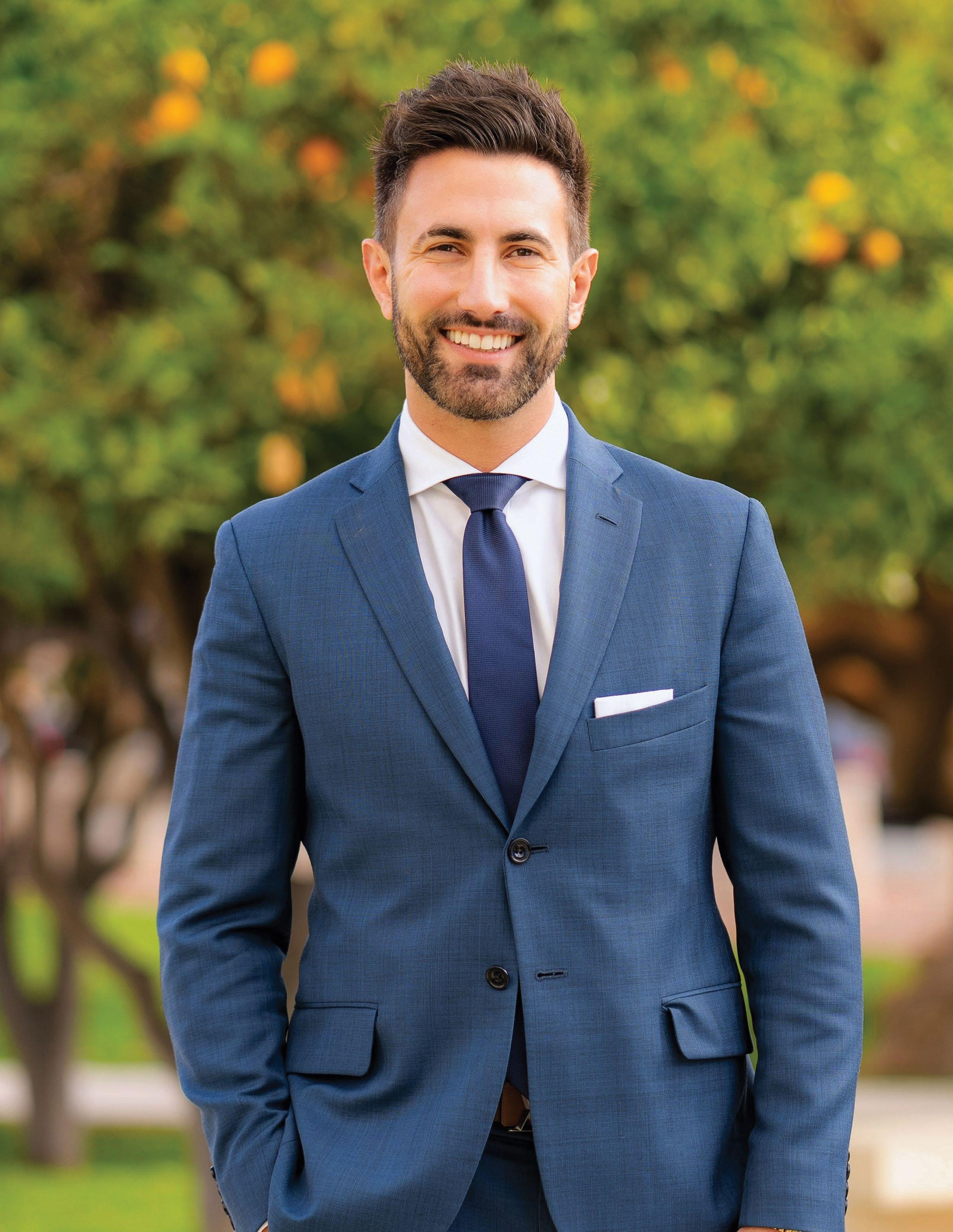
ATTORNEY OF THE MONTH 2024 JOURNALS
© christopher TODD studios
Ali Razavi, Founder and Managing Principal of Razavi Law Group, APC

dreaded the required end-of-the-year presentation. That fear stayed with him through college and law school, where the Socratic method was a basic teaching tool—and a big fear. “My heart rate would be so high I couldn’t hear myself think. Fortunately, I’m a firm believer in getting out of your comfort zone and that’s what I did to overcome my fear of speaking in public. As nervous as I was, I kept on putting myself out there at every opportunity,” Razavi says. His skills improved steadily. He became active in the negotiation classes and was selected as a member of the competition team that eventually represented the school in international competition. During that process Razavi learned that he truly had the necessary skills to speak for others.
SPEAKING OUT ON HIS OWN
When the time arrived to chart a career course, he decided to open his own firm. Initially, he was in general practice until a mentor reminded him of the adage that a jack of all trades is a master of none. At that time, a significant number of automobile cases were landing on his desk. He had a knack for that type of work and discovered that he enjoyed that practice area. He says, “I love the direct correlation between how well I do for my client and how I do for my firm. I was also drawn in by the idea that each case is like a mini partnership between our law firm and client.”
18
Attorney Journals San Diego | Volume 245, 2024
© christopher TODD studios

“It’s very, very important in our line of work to be empathetic. The first thing that I ask every client is, ‘How are you doing?’ Because I really want to know.”
Ali Razavi
Razavi had one real edge when he started his own firm, and that was the sound business experience and learning he received from his father. He notes that law schools are great at teaching the law, but are often seriously lacking in instructing students on the business of being an attorney. He was up and running and doing good business in a timeframe in which many beginning firms are struggling with the basics of just getting started.
“For example, I was able to get my law firm from zero to up on the internet within two weeks, and I did it all myself. And that’s just because I saw my dad and my family be in the business of starting and running successful businesses. So that aspect of it was second nature to me. I’m still mastering the business side, but I had a great start thanks to my family.”
Razavi says he and his team have empathy for each client, but they realize that the clients in personal injury cases need someone strong and in control—something more than just a shoulder to cry on. “It’s very, very important in our line of work to be empathetic. The first thing that I ask every client is how are you doing? Because I really want to know.” The human factor is essential to sound representation, but an attorney needs to show strength. “If I bring out a box of tissues and start crying right there with them, it doesn’t make the consultation fruitful. They may appreciate the empathy, but I don’t think they’re going have the confidence in my representation they need. We listen, but we lead and that’s how we can speak so effectively for them.”
Clients agree with his philosophy.
“Ali Razavi is a true gem in the field. He helped my family with an auto injury and was knowledgeable, quick, responsive, professional, and supportive every step of the way. Even better, we were able to receive much more compensation than we anticipated for my sister’s injury.” —Sage
As an example of his approach, Razavi cites a client for whom the firm earned a seven-figure result. A 23-year-old Air Force veteran was in a rear-end traffic accident which caused a number of serious health issues. One of the issues was POTS disease, which causes the heart to beat at abnormally high rates. His medical tests failed to show a correlation between the accident and the illness, yet the man had serious digestive issues, could no longer eat solid food, and had lost about 50 pounds—all common symptoms resulting from an automobile accident. The veteran’s first attorney was unsuccessful in his representation.
It’s very difficult for an attorney who is not a doctor to discover a complex medical issue, but they found the client to be very credible. Razavi’s team reviewed thousands of pages of medical records, while their client continued to visit various doctors, clinics, different neurologists, and different neuro-psychologists. At last, the source of his pain and suffering was discovered. The cause was a nerve condition that affects less than one percent of the population. Razavi says, “Most attorneys would have just resolved the case early because it was so difficult to find the underlying cause of the man’s problems. We solved the case for him by making sure that he got the right treatment while we were simultaneously building our case.”
In another challenging scenario, the firm was referred a case that a prior attorney dropped.
A woman in a wheelchair was hit by a vehicle in a crosswalk. She didn’t remember anything about the event and none of the police stations had a report that coincided with her name. The original attorney was not able to find insurance on this catastrophic case. Razavi’s firm requested her hospital records, found the ambulance company that transported her, located the streets where she was picked up, and found the police jurisdiction that correlated with that area. They used the pseudonym Jane Doe and found the report that showed their client was hit by a ride-share vehicle while the driver was on the clock.
Razavi credits much of his firm’s success to finding good people for his firm. He believes a leader should inspire, motivate, and also give the individual members of the team a lot of autonomy. He does not micromanage. “They know my expectations; they know what our law firm’s core values are. And I let everyone practically run their own little business. When you have talented people, they do their best when you give them free reign and aren’t constantly breathing down their necks. When you’re free to work, you’re free to do your best work,” he says.
His advice to young people considering becoming an attorney or who are young attorneys looking for the right niche is based on belief in self. There is no perfect time to find the right job. There is no perfect time to create your own firm. There is no perfect time to grow a firm. An attorney needs real confidence and that only comes from failure and the ability to learn from and bounce back from that failure and move on. “What do you want from the world and how bad do you want it? You have to believe in yourself. You have to bet on yourself and the sooner you realize that the easier it becomes,” he says.
19
Attorney Journals San Diego | Volume 245, 2024
PERSONALLY SPEAKING
“After traveling the 50-mile strip in Southern California, I think Orange County is the best real estate in the entire world. There’s nothing like it. Nothing beats it. I grew up here. My family and friends are here. And on the business side, it really helps propel my company, being in a place where people already know and trust me,” Razavi says.
Razavi, a bachelor, balances work with an active life outside the office. He works out every day with a trainer focusing primarily on circuit training with weights. He also enjoys southern California’s outdoor beauty through hiking and going to the beach. He grew up playing soccer and continues the sport through indoor soccer. “As a personal injury lawyer, I feel better at my job when I’m healthy, in good shape, and clear-minded. I also value spending time with my friends and family, either at my parents’ house or traveling to new places to get a different perspective.”
He enjoys reading and attends a lot of concerts and he especially enjoys electronic music and rap. His reading habits focus on autobiographies and self-help books. “I like to gain an insight into the brands of other businessmen and businesswomen. I am a big follower of learning from other peoples’ mistakes.”
One of his passions is working with and supporting organizations for blind children. He says he realizes that not everyone was given the opportunities he’s experienced. “Some people were just dealt a bad, bad hand, to be honest. I want to inspire kids to do more with themselves regardless of their current situation. These kids are our future and we need to do all we can to assure that they inherit a good future.”
Razavi says he is driven to succeed for his business, but also for the individual people and families he represents. “I feel like I have a duty to accomplish big things. I want to be the best. That’s really something that gets me going every day—the opportunity to be in the fight and to give it my all. What’s interesting about me is that I’m actually very average. I just want more out of life and I am more than willing to put in the hard work to get to where I want to be. I still have a long way to go, but I’m moving on the right track.” n
Contact
Razavi Law Group, APC
2090 North Tustin Avenue, Suite 250
Santa Ana, CA 92705 (949) 500-1926
www.whohurtyou.com
EXPERIENCE

» EDUCATION
• University of California, Los Angeles, Los Angeles, CA
- Bachelor of Arts, History and Minor in Iranian Studies, cum laude, June 2011
- Phi Kappa Psi Fraternity National Scholarship for Academic Excellence (2009—2011)
• Chapman University, Dale E. Fowler School of Law, Orange, CA
- Juris Doctor, May 2015
• International Negotiations and Mediation in Cambridge, England (Summer 2013)
• Dispute Resolutions Program Act Certified (2016)
» AWARDS AND HONORS
• Published in LA Daily Journal, 2024
• Super Lawyer Rising Star Award 2020, 2021, 2022, 2023 and 2024
• Voted Best Lawyer for 2018 by OC Weekly
» ASSOCIATIONS
• California State Bar Association, 2016 - Present
• Orange County Bar Association Member, 2016 - Present
• Consumer Attorney Association of Los Angeles Member, 2016 - Present
• California Employment Lawyers Association Member, 2016 - Present
• Orange County Trial Lawyers Association Member, 2016 - Present
20 Attorney Journals San Diego | Volume 245, 2024
© christopher TODD studios





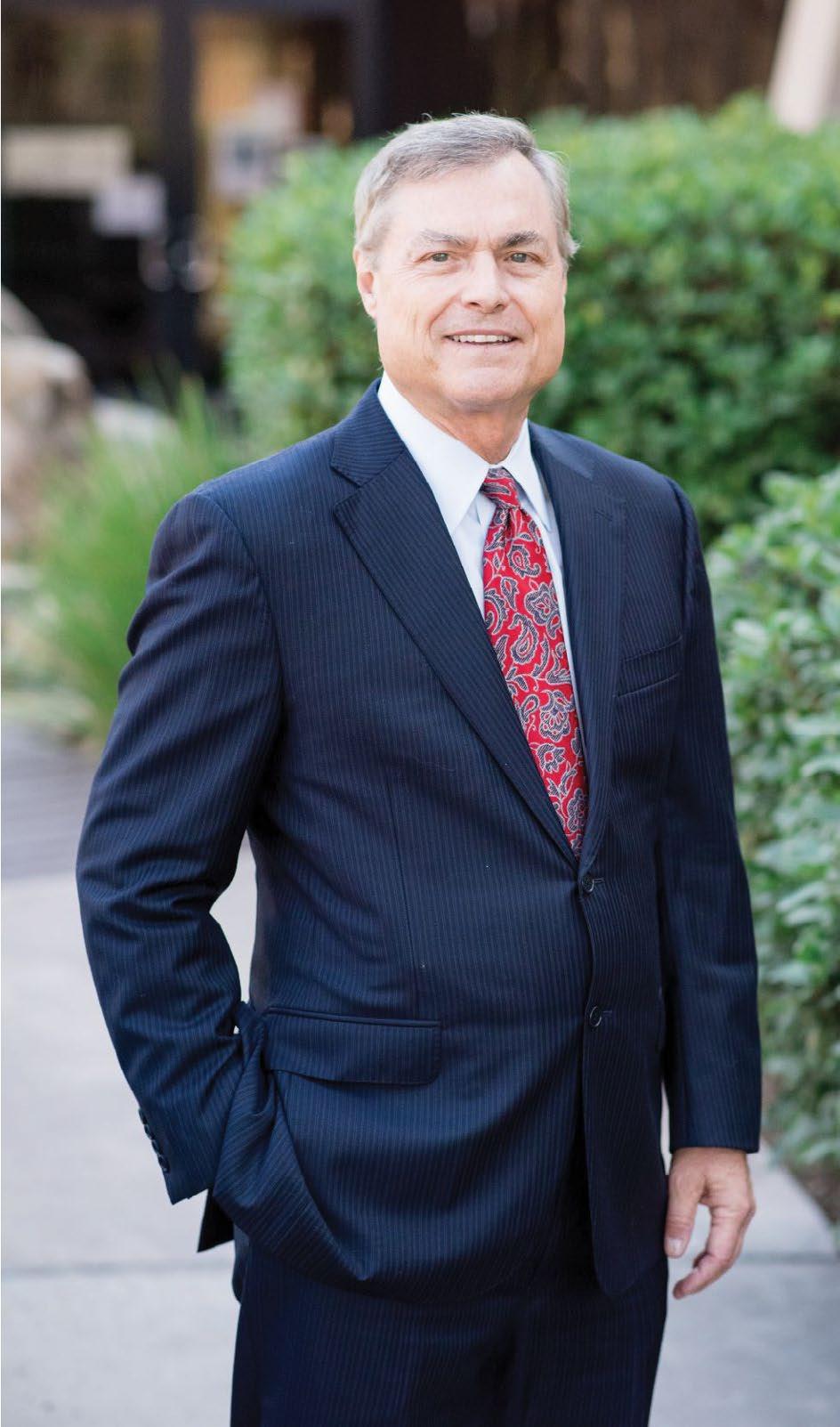


















• Websites • Presentations • Social Media • Email Marketing Writing, graphic design and marketing strategy for … • Branding • Press Releases • Print & Digital Ads • Business Cards • Newsletters • Blog Posts • Marketing Campaigns • Brochures, Flyers & More Women-Owned Business • 215-550-1435 • penn-creative.com We’ll Help Your Firm Get Noticed! Ad_AJ_Half_PennCreative.indd 1 9/20/23 12:31 PM 21 Attorney Journals San Diego | Volume 245, 2024

While convincing a prospect to take action is always the primary goal, it’s not going to happen unless you can accompany them on their journey from awareness to eventual conversion. In order for that to occur, potential leads must first be able to locate your firm. Then, to ensure you’re wellpositioned to provide what they require, you must also know where a potential client is located in their journey at all times.
All of that might seem like a big ask, but it’s actually fairly easy once you know what to do. Let’s delve into some essential demand generation strategies for lawyers and explore how selecting the right approach can streamline your client journey.
Essential Demand Generation Strategies for Lawyers
Content Marketing: Crafting a Winning Strategy
If you want to grab your audience’s attention and keep them in the loop, having some fresh content is the way to go. Build a solid content strategy that coincides with what your audience is looking for. This will not only boost the quality of leads but also boost business development. To get things started, just make sure your content speaks to the needs and issues your audience cares about, define the audience you’re talking to, and plan out your content creation and sharing strategically.
Lead Scoring: Prioritize Quality Leads
Don’t waste your time on leads that won’t likely turn into client conversions. Try out a lead-scoring strategy. Look into what your prospects are up to online and offline, then add some points for engagement. This way, you’re ensuring only the leads with a good chance of being converted get top priority.
Account-Based Marketing (ABM): Tailoring Solutions for Success
Shift your attention to small groups or individual accounts with ABM. It’s like customizing solutions for specific issues that are pain points. This collaborative style lets you use personalized marketing, keeping those high-priority clients in the loop. Quality data is crucial to building a list of qualified target clients.
�Social Media Channels: Capturing Interests Effectively
Tap into the power of social media platforms to engage with and understand what makes your target audience tick. Create content that interests them, and that aligns with what they need. Personalized and transparent content builds trust, and nothing is more important. Social media provides platforms for making connections that feel personal.
�Email Marketing Optimization: A Significant Data Source
Evaluate and enhance your email marketing campaign performance by considering factors such as open rates, spam, and unsubscribe
10 Essential Demand Generation Strategies for Lawyers
by Noreen Fishman
rates. To improve overall effectiveness, implement best practices, including personalized content, segmentation, responsive templates, and strategic testing.
Event Marketing: Building Brand Awareness and Credibility Events are a powerful tool for boosting brand awareness and credibility. Whether attending smaller, more intimate events or hosting your own online or face-to-face, these interactions provide timely solutions to your audience, allowing you to earn their trust and build brand loyalty.
�Intent Data: Identifying In-Market Clients
Utilize intent data to understand online activities and identify potential customers. Tailor your marketing approach based on search intent to create demand. By effectively leveraging intent data, firms can discover prospects, deliver quality leads, and shorten the cycle.
�CRM and Marketing Automation: Streamlining Processes
Integrate Customer Relationship Marketing (CRM) and marketing automation tools to efficiently manage demand generation efforts. Enhance lead generation, social media scheduling, analytics, drip email campaigns, and more, improving overall productivity.
Demand Funnel Framework: Visualizing Customer Journey
Utilize an efficient demand generation funnel to map the customer journey stages. Tailor your framework based on the unique characteristics of your brand, audience, and offerings. Understanding the stages of discovery, engagement, conversion, and reward enhances customer journey visualization.
Web Insights and Inbound Marketing: Unleashing the Power of Your Website
Your website plays a pivotal role in demand generation. Analyze digital footprints to uncover visitor interests, pain points, and content preferences. Inbound marketing, centered around building lasting relationships, involves blog posts, content offers, and web resources.
Takeaway
Embark on your demand generation journey by selecting the strategy that aligns with your law firm’s business development goals. Implement it seamlessly across your marketing teams to increase lead quality, genuine interest, and demand for your services. n
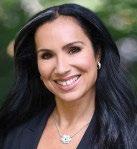
Noreen Fishman is the director of client services at Good2bSocial. Her primary responsibility is to help clients achieve their digital marketing goals. This includes managing the Good2bSocial team, ensuring constant communication with clients and updating them on their progress. Connect with Noreen on LinkedIn or www.good2bsocial.com.
22 Attorney Journals San Diego | Volume 245, 2024
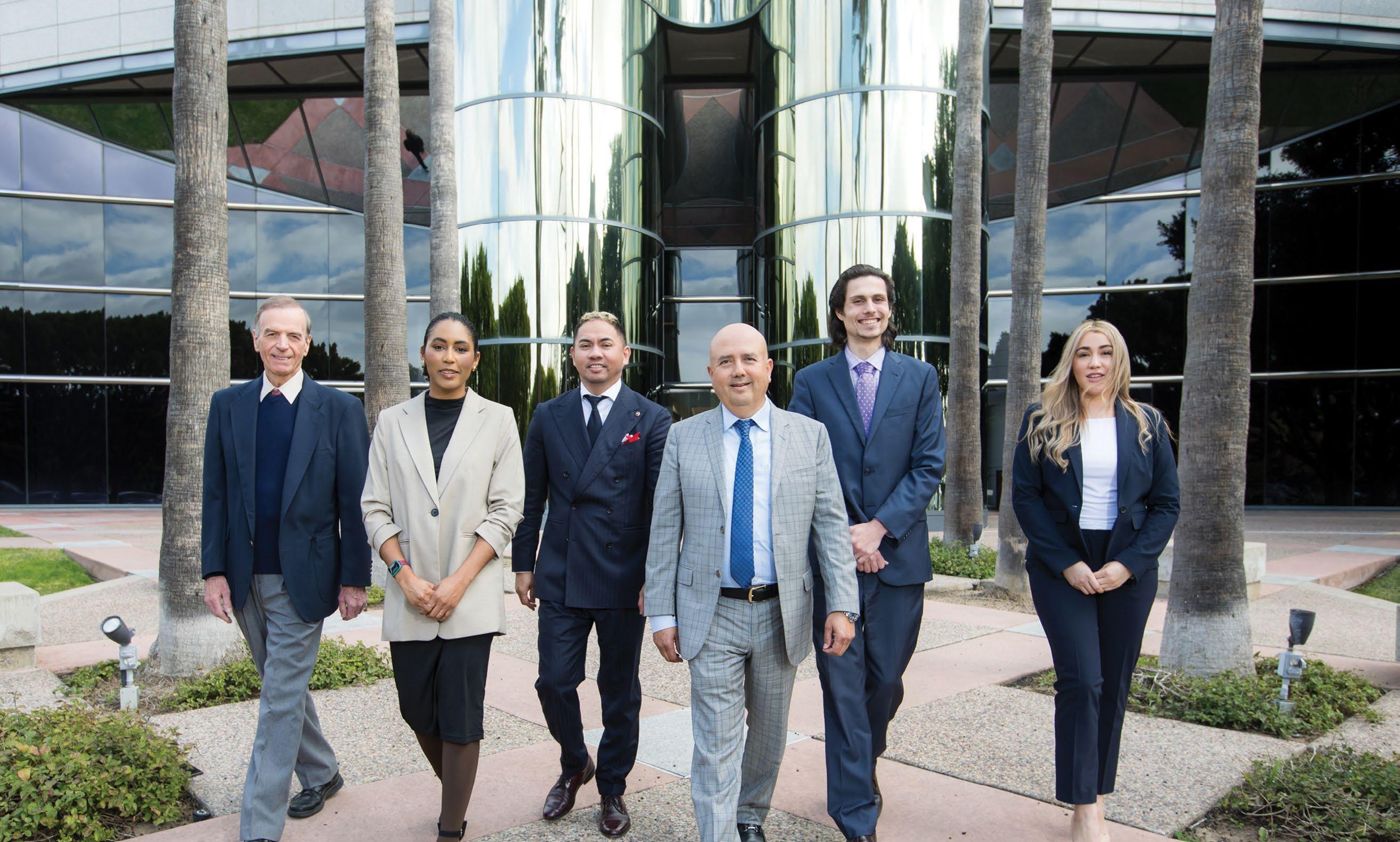
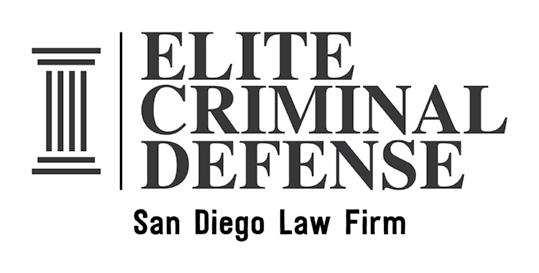
San Diego’s Top Criminal Defense Law Firm The
Criminal
Award Winning • Proven Results • 20 Years Experience Your Trusted Legal Advocates in San Diego Our commitment to justice, relentless advocacy, and unwavering support for our clients sets us apart. We understand the complexities of the legal system and are dedicated to protecting your rights. Areas of Expertise: • Assault and Battery • Assault with a Deadly Weapon • Attempted or First-Degree Murder • Burglary • Carrying a Concealed Weapon • Domestic Violence SAN DIEGO OFFICE LOCATIONS: 8880 Rio San Diego Drive, Suite 800 San Diego, CA 92108 3111 Camino Del Rio N, Suite 350 San Diego, CA 92108 EliteCriminalDefense.com 858-758-1503 • Drug Trafficking • DUI • Hit and Run • Possession with the Intent to Sell REFERRAL FEES PAID
Elite
Defense
Team: John Delisi, Jewel Peavy, Manuel Scribner, Oscar Valencia, Ryan Filippone and Adriana Jimenez.

Driving client engagement is important. With demand for services remaining almost flat, firms are grabbing share of wallet from one another. Not sure what to ask clients? How to build long-lasting trusted advisor relationships? First, let’s take a look at the stages of relationships law firms have with clients.
Study after study among law firm industry clients shows that, for the most part, they are ambivalent about their outside counsel. That’s not to say they don’t like the relationship with lawyer(s); it’s more to say that given a solid value proposition for changing counsel, some would make the switch.
There is some need-to-know information to ensure the firm is retaining and growing long-lasting relationships with clients. If relationship partners don’t have the answers to these questions, then it’s time to get them packing to go visit clients, add value, and build revenue growth opportunities. Clients not only expect these proactive visits (preferably in person but, at the very least, virtually), they will slowly distribute work to those firms that show they care.
There are two sets of helpful questions to make quick—but significant and necessary—work of advancing this aim. The purpose of the first set of questions is to proactively plan with the client by meeting once or twice a year. This alone will, by far, set a firm apart from its competitors. And, based on the responses, it allows the lawyers to anticipate related legal needs. ‘Legal planning’ is how we describe this. We all know these check-ins with clients are important. Make it a strategic priority of the firm and have partners report back on results.
Client Retention and Growth Questions (Especially Important for Client Team Planning)
• Please describe the company’s goals and objectives for the next 12 months.
• What are the company’s top three priorities this year?
• What potential challenges does the company face?
Building Long-Lasting Client Relationships
by Silvia Coulter
• Where do you see the business going in one, three, or five years?
• What growth opportunities do you foresee in the future?
• What are the greatest challenges you are facing in the legal department?
• What’s currently working in the legal department? What’s not?
• What are the best ways in which outside counsel may help you achieve your goals?
Client Service Interview Questions
VALUE
• How do you determine value received relative to professional fees?
• Regarding value, how does our firm compare to other similar law firms?
• As you consider all your service providers, what separates one from another?
• How do you manage your legal costs in terms of overall fees? Hours, rates, etc.
• Can you think of any services that we might offer that we don’t offer currently?
• What changes, if any, would you suggest?
OUTSTANDING SERVICE
• When you think of “outstanding client service,” what comes to mind?
• How would you describe “quality service?”
• What should we stop/start/continue doing?
• What else can we do to make your efforts more successful?
24 Attorney Journals San Diego | Volume 245, 2024
UNDERSTANDING YOUR BUSINESS
• What does “understand my business” mean to you? How would you evaluate our understanding of your business?
• What level of understanding do you expect from your outside counsel?
• Can you suggest ways for us to better understand your business?
• Over the next year, what changes or challenges may impact your business and what you want or need from us?
• Are there any other business needs that we might address for you?
RELATIONSHIP
• How would you describe the relationship with our firm?
• In your relationship with our firm, what specifically impressed or disappointed you?
• What are the most important elements of a professional relationship to you?
• In general, what characteristics do you value regarding the attorneys on our team?
• In what specific areas could we improve?
• How likely are you to recommend our firm to others?
To protect the firm’s client base, begin to incorporate client retention and growth plans into the firm’s strategy and discuss these strategic initiatives and progress at quarterly firm meetings. Invite clients to spread the word and provide additional thought leadership. n

Silvia Coulter is a Co-founding Principal of LawVision. Silvia is widely regarded as one of the legal industry’s most experienced sales, key client planning, and leadership experts. Her experience includes working as a former strategic account executive and sales leader at a Fortune 50 company, a chief marketing and business development officer at two global law firms, and consultant and facilitator to firms across the globe. Learn more at: www.lawvision.com.
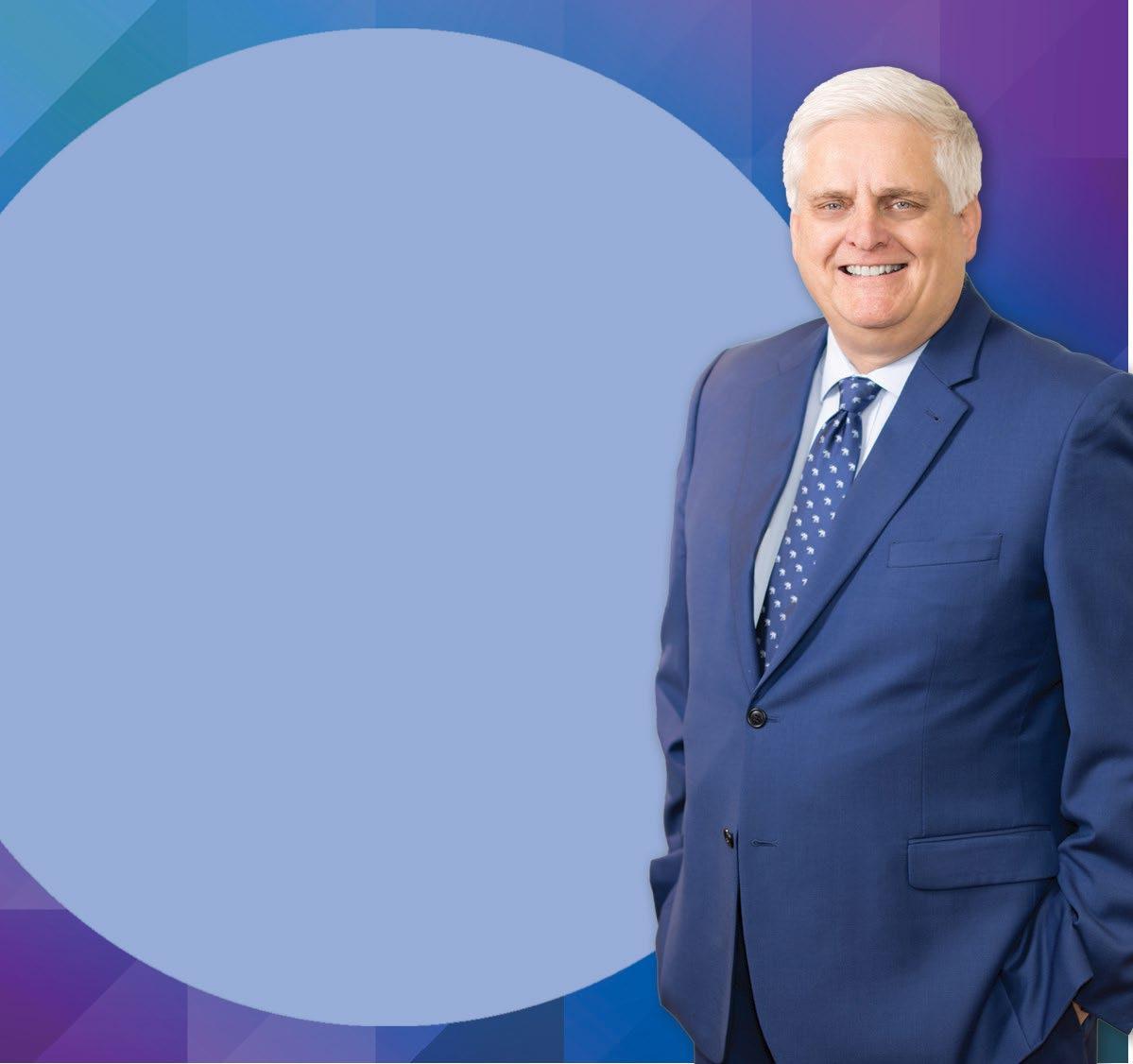

25 Local Solutions. Global Reach. Attorney Journals San Diego | Volume 245, 2024

Among neutrals in the alternative dispute resolution (ADR) arena, there is often a conversation (or dilemma) about whether to work as an arbitrator, a mediator, or both. Many neutrals prefer to choose one or the other for a multitude of reasons. Some prefer the lack of deadlines and stress found in the mediation setting. Others are concerned that their rulings in arbitrations may alienate their client base—the attorneys. Some simply have a natural preference for one form of dispute resolution versus another. After wrangling with this issue for years, I ultimately made a conscious decision several years ago: to do both.
Arbitration and Mediation: a Natural Symbiosis
The way I see it, mediation and arbitration share a symbiotic relationship of sorts. There are tasks and functions that you perform as an arbitrator that, in my opinion, make you a better mediator and vice versa. Take subject matter expertise for example. During my fifteen years as an employment law and business law litigator, I was one of the rare (or perhaps odd) individuals who truly enjoyed legal research and writing. It was also that part of my practice that taught me the most about the legal issues I was working through and forced me to stay current on the law.
After working as a full-time mediator for about ten years, it was that aspect of litigation that I realized I missed the most. Arbitration reintroduced the research and writing component into my practice. As an arbitrator, it is incredibly important for me to feel confident that I reach the correct conclusion. The best way for me to feel confident that I have in fact achieved this goal is to research. This involves not just reviewing the cases cited by the parties, but also doing my own independent research and verifying my conclusions. Not only does my research ensure that my rulings in my arbitration cases are solid and well-reasoned, but it also provides me with an even more solid foundation and deep expertise from which to draw in my mediation cases.
Recent “new” issues that have arisen in my arbitrations, such as vaccine mandate cases, Federal Trade Commission (FTC) restrictive covenant issues, artificial intelligence (AI) in employment issues, and in-depth damages analyses force me to take deep dives into the ever-evolving law on these issues. This growing familiarity with these forefront issues has broadened my knowledge base so that I am a much more effective mediator in cases where these issues are at play. When I am very familiar with the statutes and case law at issue, I have more context when considering and evaluating the allegations made by the parties. This knowledge also gives me a strong foundation for “reality
Arbitration and Mediation: Why I Do Both
by Tanya Tate
testing” with both sides and intelligently and confidently discussing possible legal outcomes and litigation strategies. Finally, possessing an in-depth understanding of the underlying law undoubtedly gives a mediator more credibility with the attorneys, which in turn increases the likelihood of resolution.
Arbitrating Makes Me a More Effective Mediator
On the flip side, as an evaluative mediator, it is critical that I listen to both sides, always considering and reconsidering each side’s positions. Mediation requires much patience and most importantly, excellent listening skills. The daily circular reasoning that is required of all mediators translates well to arbitration. It trains the arbitrator to sit as an open-minded decision-maker and to refrain from making a decision until the last post-hearing brief is filed. Jumping to conclusions is not a trait that anyone looks for in an arbitrator. Working as a full-time mediator helps prevent this from happening.
A mediator’s brain is trained to listen, evaluate, discuss, and then “rinse and repeat” all day long. Having a mediator who also works as an arbitrator all but ensures that your mediator will be trained to carefully, and without any bias, evaluate the merits of each side’s case, not just from the position of the parties or attorneys, but also through the lens of a potential decision-maker. I will sometimes warn a party in a mediation that an argument or set of facts that they are advancing would cause my “spidey senses” to tingle if I heard it as an arbitrator. This allows the parties and attorneys to consider yet another possible way that a third party might view their case.
As neutrals, it is critical that we continue to learn and to grow and to constantly hone our listening and communication skills. As Albert Einstein noted, “Intellectual growth should commence at birth and cease only at death.” This is so very true of continued growth as a mediator and arbitrator.
I of course recognize that many attorneys do find that choosing to only mediate or arbitrate is the right fit for them. For me, however, the challenge of working as both a mediator and arbitrator helps me perform better at both roles, and provides me with a rich collection of experiences from which to draw when serving in either role. I absolutely believe that doing both makes me a more effective neutral. n
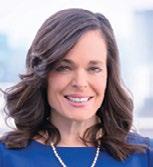
Tanya Tate is a member of the National Academy of Distinguished Neutrals, and a seasoned and highly effective mediator, Tanya has mediated hundreds of cases in her career, the majority of them disputes involving employment law and business-related matters. Learn more at milesmediation.com.
26 Attorney Journals San Diego | Volume 245, 2024
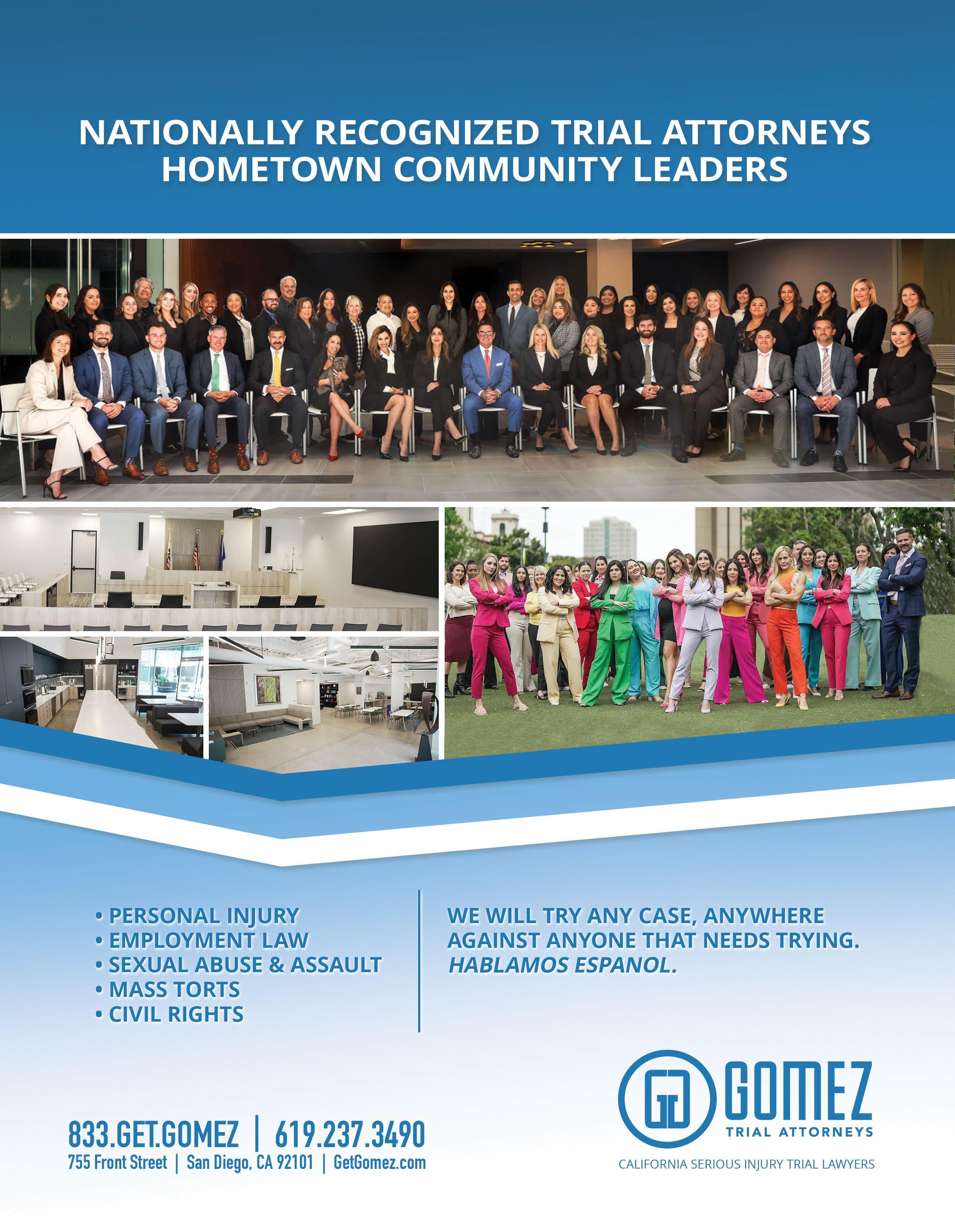

CALIFORNIA COURTS OF APPEAL
Arbitration
California Case Summaries New California Civil Cases
by Monty A. McIntyre, Esq.
These recent cases summarized by Monty A. McIntyre are from his publication California Case Summaries™. Monty prepares short summaries (one paragraph), organized by legal topic, of every new published California civil and family law case that California lawyers can subscribe to on either a monthly, quarterly or annual basis. Monty also offers specialized practice area annual summaries in the areas of Employment, Family Law, Real Property and Torts. For more information go to https://cacasesummaries.com. A California civil trial lawyer since 1980, a member of ABOTA since 1995, a past president of the SDCBA and San Diego ABOTA, and also an expert Zoom user, Monty serves as a mediator, arbitrator and referee with ADR Services, Inc. handling cases throughout California in the areas of business, elder abuse, employment/wage & hour, insurance bad faith, legal malpractice, medical malpractice, personal injury, real property and wrongful death. Website: adrservices.com/neutrals/mcintyre-monty/. To schedule a matter, contact Monty’s case manager Haward Cho, (619) 233-1323 or haward@adrservices.com.
Civil Procedure
Suarez v. Superior Court of San Diego County (2024) _ Cal. App.5th _ , 2024 WL 256450: The Court of Appeal granted a writ petition directing the trial court to vacate its earlier order granting defendant’s motion to compel compliance with the existing arbitration order and denying plaintiff’s motion to vacate the stay, and to enter a new order granting plaintiff Motion and denying defendant’s motion. Plaintiff sued his former employer. Defendant filed a motion to compel arbitration and stay the legal action, which the trial court granted. Defendant, however, failed to pay its initial arbitration fee within 30 days as required by Code of Civil Procedure section 1281.97. The trial court ruled that defendant’s payment was timely because Code of Civil Procedure section 12 extended the payment date from January 1 to January 3, and also concluded that because the arbitration provider JAMS had emailed the invoice, Code of Civil Procedure section 1010.6 (a) (3)(B) extended the deadline 2 additional days to January 5, making defendant’s payment on January 4 timely. The Court of Appeal disagreed, holding that section 1010.6 did not apply to the e-mail transmission of a JAMS fee invoice. By its terms, the statute governs the service of documents in an action filed with the court. An arbitration proceeding is not an action filed with the court, and the invoice required by Code of Civil Procedure section 1281.97 is provided to the parties but is not served. (C.A. 4th, January 24, 2024.)
Di Martini v. Superior Court (2024) _ Cal.App.5th _ , 2024 WL 227975: The Court of Appeal granted a writ petition directing the trial court to grant petitioner’s motion to expunge a lis pendens. Petitioner agreed to sell real property to real party in interest Puga Gupta. Gupta won an arbitration award and filed a motion to confirm the award as a judgment. She also recorded a lis pendens. Petitioner filed a motion to expunge which the trial court granted because the action to confirm the award was not a real property claim and there was no request to quiet title. Gupta then filed a new action seeking to compel petitioner to complete the sale of the real property, and recorded another lis pendens. The trial court denied petitioner’s motion to expunge, concluding that Code of Civil Procedure section 405.36 only applies to successive lis pendens filed in the same action, and also concluding that Gupta established a prima facie case regarding the probable validity of a real property claim. The Court of Appeal disagreed, concluding that under section 405.36, because the Gupta lis pendens had been expunged in a prior related proceeding, Gupta was required to seek court permission before recording her lis pendens and the trial court erred in denying the motion to expunge. The trial court erred by applying a prima facie standard for determining whether Gupta established the probable validity of her real property claim. A trial court must order a lis pendens be expunged if the claimant fails to establish by a preponderance of the evidence the probable validity of the real property claim. (§ 405.32.) (C.A. 1st, January 22, 2024.)
Insurance
Myasnyankin v. Nationwide Mutual Ins. Co. (2024) _ Cal. App.5th _ , 2024 WL 340287: The Court of Appeal, in a consolidated action involving two appeals, affirmed the trial court’s order denying defendant’s demurrer to plaintiff’s
28 Attorney Journals San Diego | Volume 245, 2024
complaint seeking a declaration of his rights regarding the video recording of an examination under oath (EUO) in Insurance Code section 2071.1 (a)(4), and reversed the trial court’s order denying plaintiff’s motion for attorney fees under Code of Civil Procedure section 1021.5. Defendant carrier demanded an EUO, but objected when plaintiff wanted to video defendant’s attorneys and claims representatives during the examination. Defendant refused to proceed with the EUO, asserting section 2071.1(a) (4) only permitted plaintiff to video record himself. Defendant also threatened to deny plaintiff’s claim unless he agreed to proceed with the EUO. Plaintiff then sued defendant seeking a declaration of his rights under section 2071.1. The Court of Appeal, ruling on an issue of first impression, held that the plain language, statutory framework, and legislative history all support a construction of section 2071.1(a)(4) granting insureds the right to make a video recording of the insurer’s representatives at an EUO. The Court of Appeal concluded that the trial court erred in denying plaintiff’s motion for attorney fees under Code of Civil Procedure section 1021.5, and remanded for the trial court to determine the amount of fees to be awarded. (C.A. 1st, January 30, 2024.)
Torts
Gilead Tenofovir Cases (2024) _ Cal.App.5th _ , 2024 WL 94462: The Court of Appeal affirmed in part, and denied in part, a writ petition seeking to overturn the trial court’s order
denying defendant’s motion for summary judgment or summary adjudication. The 24,000 plaintiffs in this coordinated proceeding alleged they suffered skeletal and kidney damage or other adverse effects from taking defendant’s drug tenofovir disoproxil fumarate (TDF) to treat HIV/AIDS. Plaintiffs did not allege that TDF was defective. Instead they alleged that defendant was negligent due to its alleged decision to defer development of another drug tenofovir alafenamide fumarate (TAF), which had fewer adverse effects, to maximize its TDF profits. Plaintiffs also alleged a claim for fraudulent concealment, reasoning that defendant had a duty to disclose information about TAF to users of TDF. The Court of Appeal affirmed the trial court’s denial of the summary judgment as to negligence. It concluded that the legal duty of a manufacturer to exercise reasonable care can, in appropriate circumstances, extend beyond the duty not to market a defective product. Analyzing duty under Rowland v. Christian (1968) 69 Cal.2d 108, the Court of Appeal concluded that it was possible that plaintiffs could assert a claim for negligence, without proof of a defect, as to decisions the drug manufacturer made after obtaining the results of Phase III clinical trials of the alternative drug. However, the factual record before the Court of Appeal was not sufficient to determine whether or not such a duty had been breached. The Court of Appeal reversed the trial court’s denial of summary judgment on fraudulent concealment, concluding that defendant’s duty to plaintiffs did not extend to the disclosure of information about TAF. (C.A. 1st, January 9, 2024.) n
a world full of mergers and monopolies, count on us to keep it real.
29 In
When it comes to court reporting, video and litigation services, Peterson delivers real reporters, real experience, and real service. Day by day, year by year, case by case, we’ve been setting the high bar for integrity, technology and reach for over 35 years. Independently owned and operated 100% Woman-owned Business WBE Certified Serving CA and the US since 1986 Nationwide Reporting | petersonreporting.com | 800-649-6353 Peterson Reporting 2023 Atty Journal HPH.indd 1 4/25/23 4:45 PM Attorney Journals San Diego | Volume 245, 2024

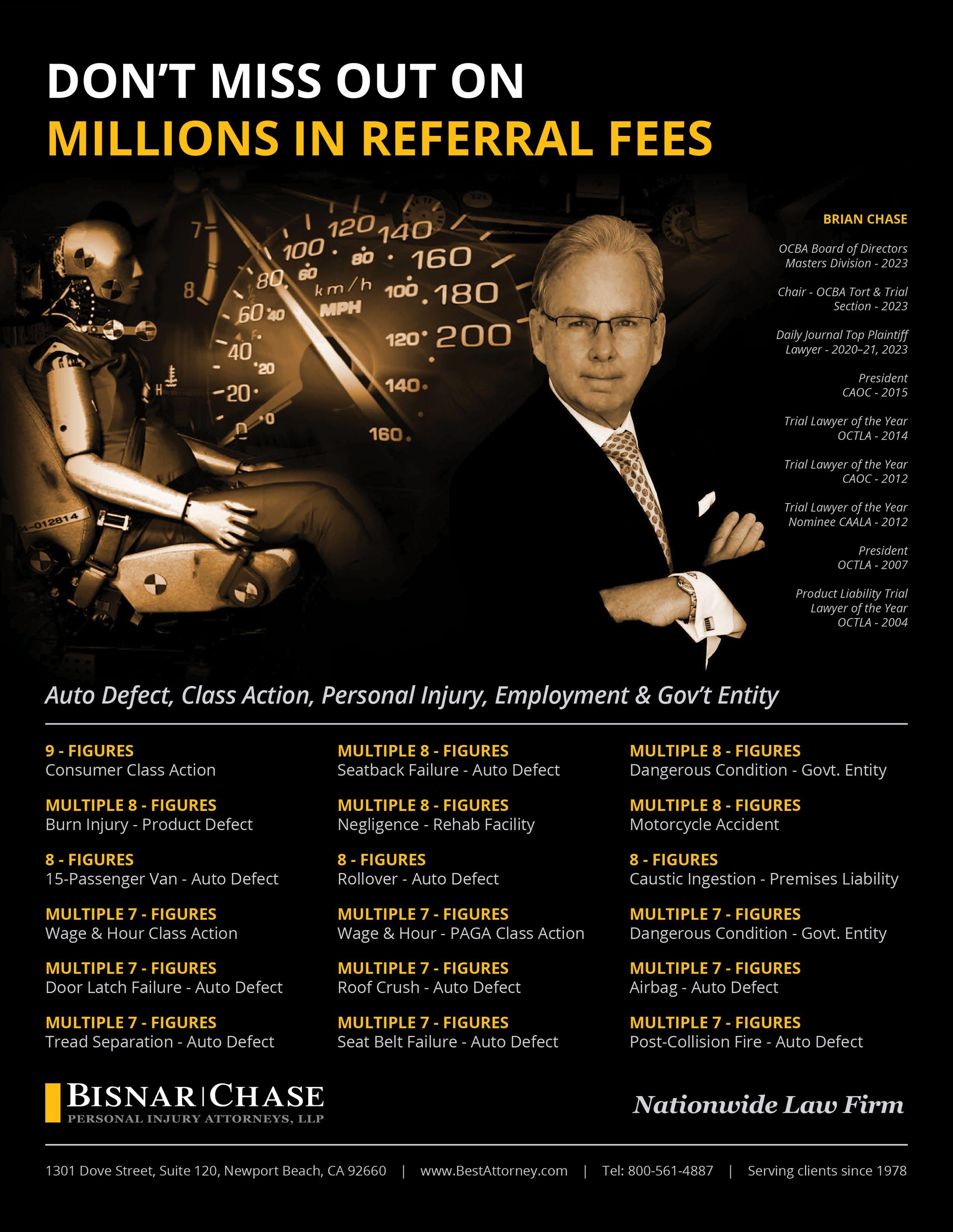
We’ve Got Nevada Covered Too.
MEET OUR NEVADA LICENSED ATTORNEYS


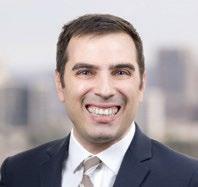
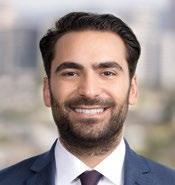
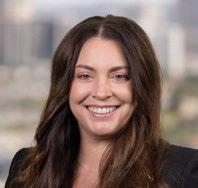
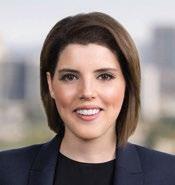





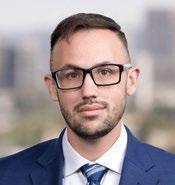


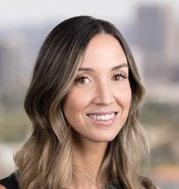


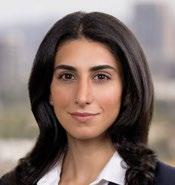


We invite you to visit our Las Vegas office, located across the street from the Courthouse, where we offer attorneys use of our full courtroom to conduct focus groups, mock trials, and witness preparation.
Panish | Shea | Ravipudi LLP attorneys fight every day to obtain justice for our clients and make a difference in their lives. But our expertise in personal injury litigation doesn’t stop at the California state line.
With 20 attorneys licensed in Nevada, we have obtained record results in the state. The firm welcomes all joint venture opportunities, including with attorneys who want to stay more actively involved in a case.
|
877.800.1700 panish.law STRENGTH BY YOUR SIDE ®
CALIFORNIA
NEVADA PRSRT STD U.S. POSTAGE PAID PERMIT # 100 CLAREMONT, CA















































































































































